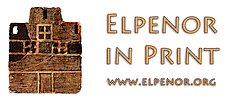In the first chapter, while dealing with the concept of courage, I referred to the Middle Ages and its aristocratic interpretation of courage. The courage of the Middle Ages as of every feudal society is basically the courage to be as a part. The so-called realistic philosophy of the Middle Ages is a philosophy of participation. It presupposes that universals logically and collectives actually have more reality than the individual. The particular (literally: being a small part) has its power of being by participation in the universal. The self-affirmation expressed for instance in the self-respect of the individual is self- affirmation as follower of a feudal lord or as the member of a guild or as the student in an academic corporation or as a bearer of a special function like that of a craft or a trade or a profession. But the Middle Ages, in spite of all primitive elements, is not primitive. Two things happened in the ancient world which separate medieval collectivism definitively from primitive collectivism. One was the discovery of personal guilt—called by the prophets guilt before God: the decisive step to the personalization of religion and culture. The other was the beginning of autonomous question-asking in Greek philosophy, the decisive step to the problematization of culture and religion. Both elements were transmitted to the medieval nations by the Church. With them went the anxiety of guilt and condemnation and the anxiety of doubt and meaninglessness. As in later antiquity this could have led to a situation in which the courage to be as oneself was necessary. But the Church gave an antidote against the threat of anxiety and despair, namely itself, its traditions, its sacraments, its education, and its authority.
LIBRARY
HOMER
HESIOD
ORPHICA
ARCHILOCHUS
SAPPHO
ALCAEUS
ANAXIMANDER
XENOPHANES
HERACLITUS
PARMENIDES
EMPEDOCLES
ANAXAGORAS
AESCHYLUS
SOPHOCLES
EURIPIDES
THUCYDIDES
HERODOTUS
ARISTOPHANES
PLATO
ARISTOTLE
HESIOD
ORPHICA
ARCHILOCHUS
SAPPHO
ALCAEUS
ANAXIMANDER
XENOPHANES
HERACLITUS
PARMENIDES
EMPEDOCLES
ANAXAGORAS
AESCHYLUS
SOPHOCLES
EURIPIDES
THUCYDIDES
HERODOTUS
ARISTOPHANES
PLATO
ARISTOTLE
PHILO
EPISTLE TO DIOGNETUS
IGNATIUS THEOPHORUS
CLEMENT OF ALEXANDRIA
ORIGEN
PLOTINUS
ATHANASIUS THE GREAT
GREGORY THE THEOLOGIAN
BASIL THE GREAT
GREGORY OF NYSSA
MACARIUS THE GREAT
ECUMENICAL SYNODS : THESYMBOL OF FAITH
CYRIL OF ALEXANDRIA
PROCLUS
ROMANOS MELODOS
DIONYSIUS THE AREOPAGITE
MAXIMUS CONFESSOR
PETER DAMASCENE
SYMEON THE NEW THEOLOGIAN
GREGORY PALAMAS
NICHOLAS CABASILAS
MANUEL II PALAEOLOGUS
GENNADIUS SCHOLARIUS
DIONYSIOS SOLOMOS
CAVAFY
PAPATSONIS
EPISTLE TO DIOGNETUS
IGNATIUS THEOPHORUS
CLEMENT OF ALEXANDRIA
ORIGEN
PLOTINUS
ATHANASIUS THE GREAT
GREGORY THE THEOLOGIAN
BASIL THE GREAT
GREGORY OF NYSSA
MACARIUS THE GREAT
ECUMENICAL SYNODS : THESYMBOL OF FAITH
CYRIL OF ALEXANDRIA
PROCLUS
ROMANOS MELODOS
DIONYSIUS THE AREOPAGITE
MAXIMUS CONFESSOR
PETER DAMASCENE
SYMEON THE NEW THEOLOGIAN
GREGORY PALAMAS
NICHOLAS CABASILAS
MANUEL II PALAEOLOGUS
GENNADIUS SCHOLARIUS
DIONYSIOS SOLOMOS
CAVAFY
PAPATSONIS
© 2026 ELLOPOSnet


